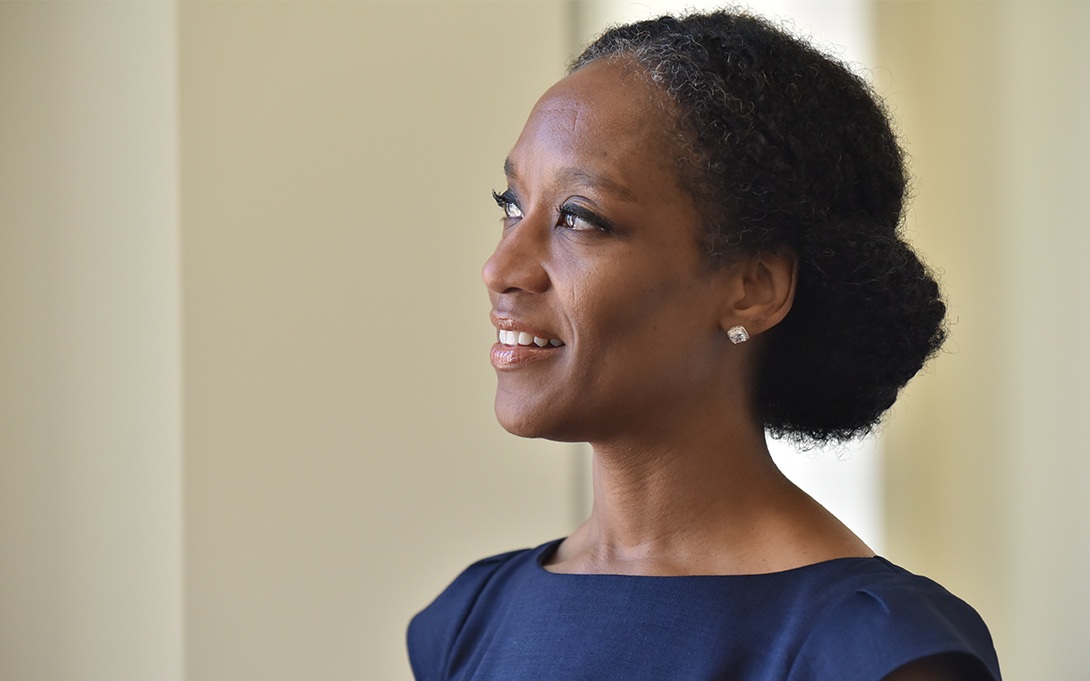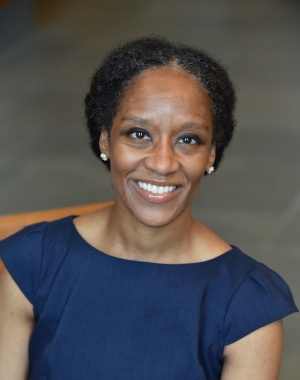
This spring, the Ford School finishes the implementation of our 5-year strategic plan for Diversity, Equity, and Inclusion (DEI), launched in 2016 in concert with a University-wide set of coordinated DEI plans. This summer we will develop strategic priorities for the next two years with input and feedback from students, faculty, staff, and alumni.
Here, Ford School DEI lead Stephanie L. Sanders, PhD reflects on the work.
Read about the Ford School’s anti-racism and equity achievements, current work, and future goals.
State & Hill: How did you come to doing this work at the Ford School?
Stephanie Sanders: I am a first-generation college student who understands first-hand the benefits of educational opportunities. My background has had a significant impact on my life and career choice. Leading DEI efforts is one way for me to make positive organizational change and impact opportunities for students with a similar background.
Thoughts on what has been an intense time for campus work on DEI?
Since I came on board in 2017 there has been a steady drumbeat of events, both positive and negative, that bring greater awareness to racial justice issues: the Unite the Right rally, hateful statements painted on campus, tensions regarding free speech surrounding campus visits by provocateurs, and millions of people participating in BLM protests across the globe. That drumbeat keeps us focused on outcomes, and has brought equity and systemic change to the forefront in all that we do at the Ford School.
These issues deeply impact members of our community, and I am proud to be part of a leadership team that addresses these issues in and out of the classroom. Students and alumni have called upon the Ford School to more explicitly engage in this work in our teaching, research, and policy engagement. And so we continue to deepen engagement around these issues in a thoughtful way.
How has the Ford School approached DEI?
We still have a long way to go, but I am really excited about how we’ve layered, in a complementary way, critical changes to the curriculum, an impressive slate of programming and events that bring in different perspectives, and many plug-in points where students can engage on these issues. We are focused on high impact policy and institutional changes, like changes to the faculty annual review process, faculty and staff hiring processes, course evaluations, and more.
We are currently working with faculty to enhance and redesign course coverage of structural racism, institutional discrimination, and colonialism in the curriculum. One focus is on the history of public policy and its role in perpetuating systemic racism, and how critical it is to work toward racial equity or racial justice. I see a particular imperative here in that we’re training policy leaders who will serve the needs of an increasingly diverse society. And the ability to lead on issues of equity and diversity is an important skill set we must provide our students.
This work is ongoing and our next steps this summer are to listen to members of our community. No one person has all the answers, so we will be bringing in many voices to accomplish our goals collaboratively.
Below, find the full, formatted Spring 2021 edition of State & Hill.
